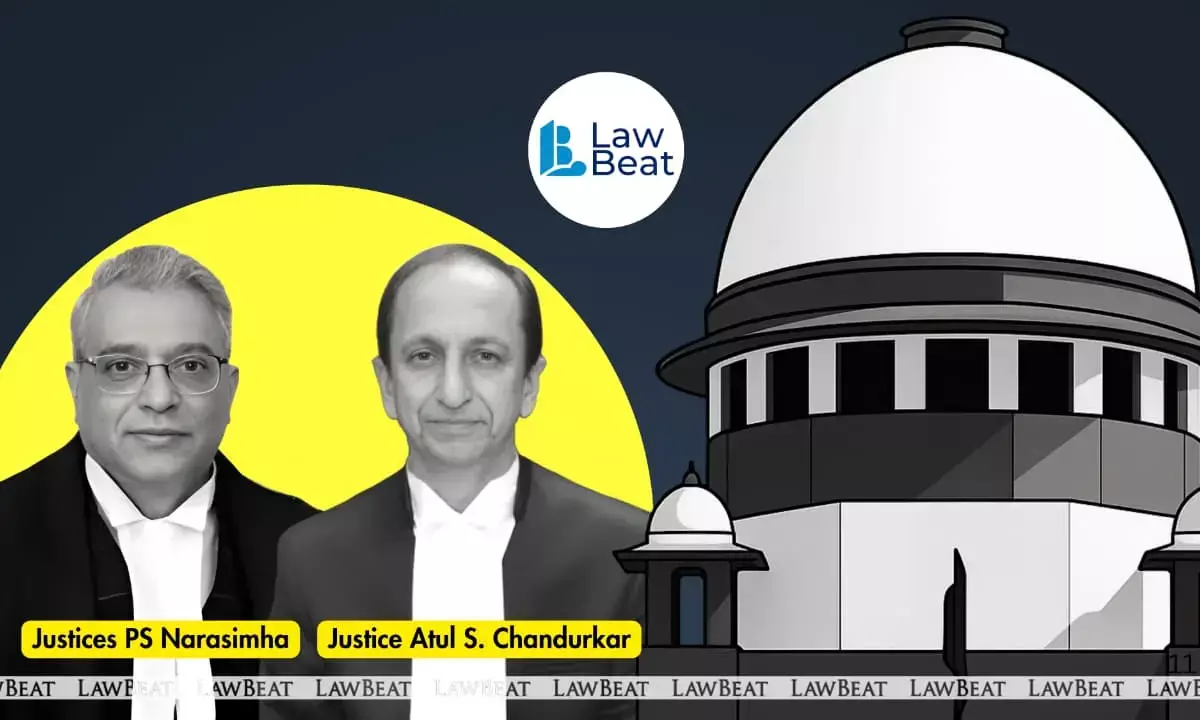If Trial Court Misreads Evidence, Appellate Court Can Interfere With Finding of Facts: SC

The Supreme Court clarifies when an appellate court can interfere with a finding of fact, allowing appeals against the Karnataka High Court's reversal of a District Judge's order.
The Supreme Court has clarified that an appellate court is entitled to interfere with a finding of fact if the appraisal of the evidence by the trial court "suffers from a material irregularity or is based on inadmissible evidence or on conjectures and surmises".
This observation was made in a matter arising out of appeals challenging a reversing judgment of the Karnataka High Court.
A bench of Justices P S Narasimha and Atul S Chandurkar underscored the important duty that an appellate court exercises, particularly when it seeks to reverse the judgment of the trial court.
The bench emphasised that the findings of fact based on conflicting evidence arrived at by the trial court must weigh with the appellate court, more so when the findings are based on oral evidence recorded by the same Presiding Judge who authors the judgment.
The bench said, "This certainly does not mean that when an appeal lies on facts, the appellate court is not competent to reverse a finding of fact arrived at by the trial judge".
Court highlighted two key conditions for appellate review. Firstly, when there is conflict of oral evidence of the parties on any matter in issue and the decision hinges upon the credibility of witnesses, then unless "there is some special feature about the evidence of a particular witness which has escaped the trial judge's notice or there is a sufficient balance of improbability to displace his opinion as to where the credibility lie," the appellate court should not interfere with the finding of the trial Judge on a question of fact.
Secondly, the bench added that while reversing a finding of fact, the appellate court must "come into close quarters with the reasoning assigned by the trial court and then assign its own reasons for arriving at a different finding".
Court was dealing with appeals assailing the reversing judgment of the Karnataka High Court, which had set aside the common order passed by the Additional District Judge, Bellary, under the Provincial Insolvency Act, 1920.
The Supreme Court allowed the appeals filed by the appellants and also dismissed the connected appeals filed by the respondents. The dispute related to a partnership firm formed in 1963 and the transfer of shares following a change in its composition in subsequent years. The firm subsequently faced insolvency proceedings.
The bench held that the high court was not justified in reversing the findings of the district court on the ground that the transfer deed remained unchallenged and thus it committed a serious error. Court pointed out that the high court also committed a jurisdictional error in not reappreciating the evidence adduced before the trial court, which as an appellate court the high court was bound to undertake.
The bench noted that all that the high court did to reverse the findings of facts arrived at by the district court was simply to say that, "the learned District Judge has proceeded on the basis that Exs.P4 to P7 are concocted and fabricated. The said finding is based upon surmises and conjectures”. Court found that there was no independent reasoning based on the evidence on record.
Court further observed that the high court simply proceeded on the premise that the order of January 04, 1983, coupled with the execution of the transfer deed having become final, the appellants are bound by the transaction.
The bench stated, "For operation of Section 37 of the Provincial Insolvency Act, 1920, it is fundamental that there must in fact be a finality of transactions. In other words, there must be conclusion of sales, dispositions of property and/or the payments made in that regard. Section 37 proceedings cannot partake the character of a civil court deciding a suit for specific performance of an agreement".
Court allowed the civil appeals against the judgment and order passed by the high court in 2011 and restored the judgment and order passed by the Additional District Judge, Bellary, in 2004.
Case Title: Singamasetty Bhagavath Guptha & Anr Vs Allam Karibasappa (D) By Lrs /Allam Doddabasappa (D) By Lrs. & Ors
Judgment Date: September 25, 2025
Bench: Justices P S Narasimha and Atul S Chandurkar
